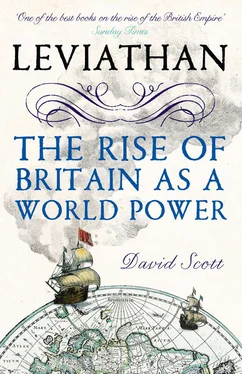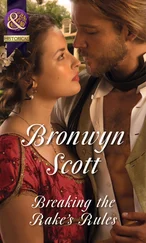Henry’s ostentatious peacemaking climaxed in 1520 on the Field of the Cloth of Gold, near Calais. Anxious to assert the power of their crowns in the face of Charles V’s election as emperor, Henry and Francis I revived an idea they had been toying with for several years of a personal meeting between the two monarchs. Following a treaty devised by Wolsey detailing the exact terms of the summit, Henry and Queen Katherine crossed the Channel late in May 1520, accompanied by some 6,000 courtiers, clerics and attendants. For seventeen days that June, Henry and Francis and the flower of English and French chivalry jousted, feasted and exchanged lavish gifts and compliments. Little in the way of hard diplomatic business was conducted amid all this extravagance. Nevertheless, the Field of the Cloth of Gold served a serious political purpose for both parties. Henry was desperate to secure Francis’s recognition of his power and international status, while Francis wanted to keep Henry quiescent and well away from Charles V. If nothing else the occasion allowed the two monarchs to put the Anglo-French peace agreed at London in 1518 on a more personal footing. Yet beneath the canopies of ‘soo ryche and goodly tentys’ the old animosities stirred. 44One English nobleman was heard to declare: ‘If I had a drop of French blood in my body I would cut myself open to get rid of it.’ 45That this was envy as much as disdain is clear from Henry’s court, where French fashions and tastes had begun to displace Burgundian and Italian influences. Polydore Vergil was clearly shocked that ‘from many most wanton creatures in the company of the French ladies [at the Field of the Cloth of Gold], the English ladies adopted a new garb which, on my oath, was singularly unfit for the chaste’. 46The vogue for French fashion at court did nothing to change the English people’s knee-jerk contempt for the French. ‘The best word an Englishman can find to say of a Frenchman’, claimed one foreign observer, ‘is “French dog”.’ 47
The rivalry between Henry and Francis quickly turned nasty. Within two years of the Field of the Cloth of Gold the glory-hungry Henry was at war with Francis as part of the Emperor Charles V’s own, much more deadly, rivalry with the French king. English troops from Calais raided deep into northern France in 1522. And in 1523 an Anglo-Habsburg army under English command marched to within fifty miles of Paris, before retreating in the face of superior French forces. It was only years later that Henry recognised the 1523 campaign for what it was – the final opportunity to revive, however transiently, the ‘dual monarchy’ of Henry V. The 1523 thrust towards Paris represented the last faint echo of English greatness in the Hundred Years War.
Henry’s enthusiasm for war against France faded after 1523 as his cash reserves ran dry. By early 1525, Wolsey was preparing to make peace with the French when news reached England of the Spanish–Imperial victory over Francis I’s army at the battle of Pavia, in northern Italy, in which the French king himself had been taken prisoner. A jubilant Henry now proposed to Charles V that they divide Francis’s leaderless realm between them. But the emperor had no wish to share the spoils of his victory, and resented what he regarded as the English king’s niggardly contribution to the war effort. The tax revolts that greeted Wolsey’s Amicable Grant of 1525 – which was designed to raise money for Henry’s proposed partition of France – exposed all too clearly the Tudor state’s incapacity for sustained warfare. Desperate for money, and fearful of Charles V’s intentions, Henry had Wolsey negotiate a treaty with the French regent, Louise of Savoy, by which he promised to work for Francis’s release (which was duly secured in 1526) in return for a large French pension. Although Wolsey helped to create the anti-Imperial Holy League of Cognac in 1526, the exhausted state of royal finances was probably one reason why Henry then declined to play an active part in this alliance.
A lack of interest, as well as money, marked Henry’s handling of the volatile Tudor borderlands. Following the death of the 8th earl of Kildare in 1513, he appointed the 9th earl, his boyhood companion, as lord deputy of Ireland in his father’s place. Henry was at first content to give Kildare a free hand, being no more interested in imposing direct rule or in conquering Gaelic Ireland than Henry VII had been. As long as the Pale was adequately defended and at a minimum cost to the crown, Henry was happy to let Wolsey and Kildare get on with it. To attempt anything more ambitious was, in Henry’s own words, ‘consumpcion of treasour in vayne’ – certainly when that treasure might be better employed winning him great victories in France. 48Kildare’s high-handed style of government landed him in trouble at court, however, and during the 1520s the king and Wolsey experimented with the earl of Surrey and then one of Kildare’s rivals among the Butlers as lord deputy. But these alternatives to the Kildare ascendancy proved either too costly or incapable of preventing Gaelic raiding – and usually both. The royal council in Dublin was certainly not up to the job, as a government report of 1526 made clear:
The Council, being in a corner of the land, are satisfied if the part of four shires called the English Pale be at peace; in which case they report to the King that the land is in good quiet, caring no more for the rest of it than the Venetians do for the Scots. They have thus diminished the King’s jurisdiction from a large forest to a narrow park. 49
The council itself admitted to the king that ‘there is none of this land that can or may do for defence of the same so well as [Kildare]’. 50By the close of 1532, Henry was back at square one, having reappointed a triumphant Kildare as deputy. Henry showed even less imagination when it came to governing England’s northern marches, where his distrust of the border nobility, and his belligerence towards the Scots, simply perpetuated the region’s endemic state of lawlessness and violence.
Henry’s wars of magnificence had made him more enemies than friends by the mid-1520s, for all Wolsey’s clever diplomacy. More worryingly, his pretensions to rival Charles V and Francis I in martial greatness, in so far as they required financial expedients like the Amicable Grant to sustain them, threatened the stability of the Tudor realm. With the ideas of the ‘heretic’ Luther provoking schism and peasant revolts in Germany, and beginning to find a small but receptive audience in London and at Oxford and Cambridge universities, it was no time for Henry to be stirring up domestic unrest. Opposition at home did not reflect well on him abroad, and he would need to project an image of assured authority, of a king who commanded the undivided loyalty of his subjects, if he was to overcome a crisis that was developing within his own family by the mid-1520s: the breakdown of his marriage to Katherine of Aragon. The queen had borne Henry at least five children since 1510, but only one, Princess Mary (b. 1516), had survived infancy. The rest had been stillborn or had died shortly after birth. The king had an acknowledged son, Henry Fitzroy (b. 1519), by one of his mistresses, Elizabeth Blount, a lady-in-waiting to the queen, but he needed to sire a legitimate and healthy male heir to safeguard the Tudor dynasty; and with Katherine in her mid-thirties by 1520, and looking – according to the Venetian ambassador – ‘rather ugly than otherwise’, the chances of that happening had begun to seem remote. 51The apparent seriousness of Henry’s affair with one of his courtiers’ daughters, Mary Carey, née Boleyn, during the early 1520s suggests that sexual relations between the king and queen had ceased, and were not likely to resume. It was now merely a question of time before Henry sought an annulment of his marriage, and began looking for a new wife and queen.
Читать дальше












